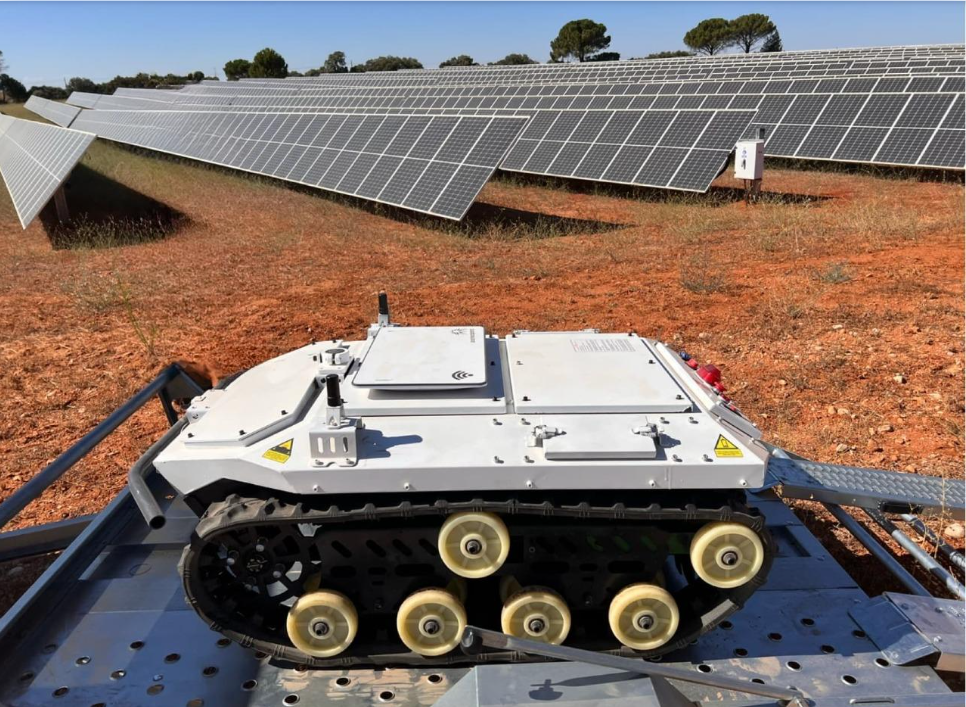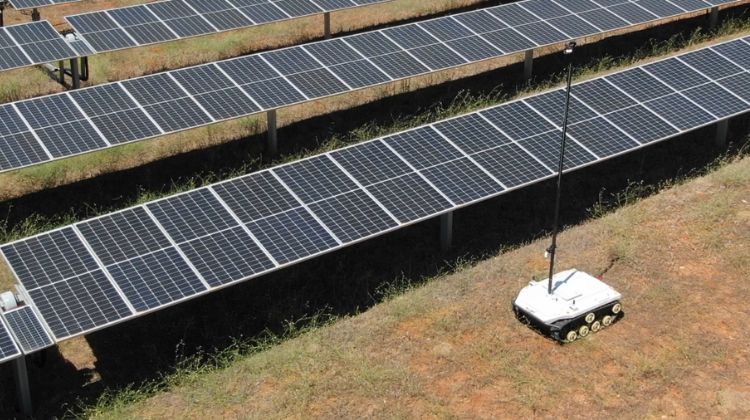Created by the Salamanca-based company Arbórea Intellbird, it combines cutting-edge technologies to facilitate the integration of large photovoltaic plants into their natural environment, prevent fires and reduce maintenance costs.
As it does? In principle, it controls the steppicursors. These are great enemies of photovoltaic plants, since they generate desertification, loss of soil, biodiversity and increase the availability of dust that damages solar panels.
Furthermore, this type of tumbleweed accumulates in the structures, damaging the basal vegetation that better reflects sunlight – necessary for bifacial modules – and maintains soil nutrients, improving the environmental impact of the park.
For its part, it has a set of high-resolution thermographic sensors that continuously take thousands of measurements of the installation every second, detect irregularities and send, via email, an alert with the report and high-precision geolocation to act. quickly on them.
In the same way, you do it with your own maintenance. If the equipment fails, alerts are sent to the manufacturers to resolve it more efficiently.
“It operates with artificial intelligence, allowing continuous communication of the robot, with the operator and the virtual control tower that has global coverage, allowing this solution to be applied anywhere in the world,” explained Carlos Bernabéu, CEO of the company, during his presentation. .
In dialogue with Energía Estratégica España, the executive added that automatic missions can also be programmed that will allow it to become a great ally in the operation and maintenance of any company.
Equipment characteristics

It weighs 285 kg and looks robust, is completely electric and is built with aerospace alloys.
The inspection autonomy is above 30 hours, carrying out inspections of the photovoltaic infrastructure, without requiring the intervention of any human operator.
As Bernabéu comments, it is inspired by the hunting strategies of the genet, a nocturnal predator that populates the Spanish oak forests, capable of moving with precision in the dark.
Likewise, the manager added: “It receives its name from the advance troops that preceded the legions of ancient Rome, and its automatic movement is based on centimeter precision.”
Antecursor II is currently operating in Spanish plants and the CEO of Arborea Intellbird announced that “by the end of this year they hope to have 10 teams in operation.”
It should be noted that this company is the creator of the Arachnocóptero, a drone that scans the state of the facilities and allows failures to be detected and acted upon quickly, increasing the useful life of wind turbines and solar panels.
In this exclusive interview with Energía Estratégica España, Carlos Bernabéu assures that the Spanish industry is called to be the protagonist of the technological revolution and describes the main challenges of the sector.





